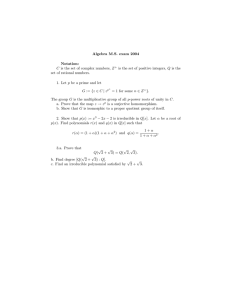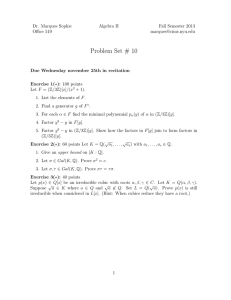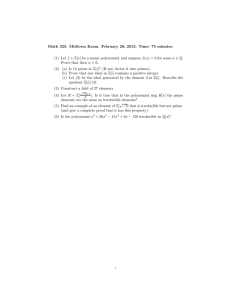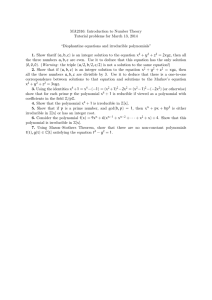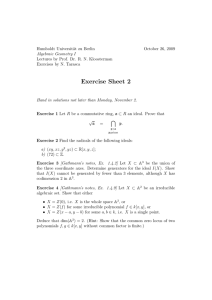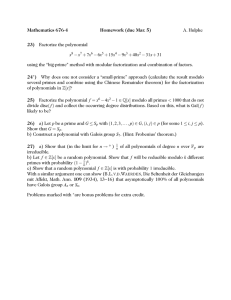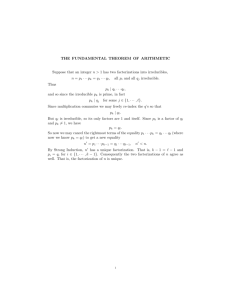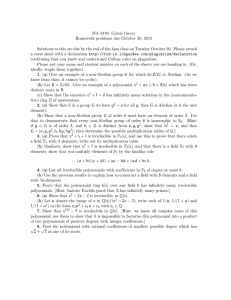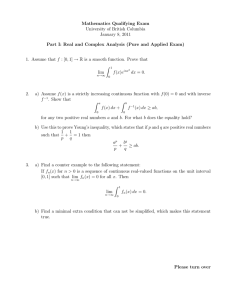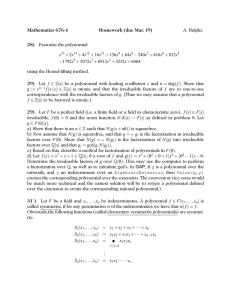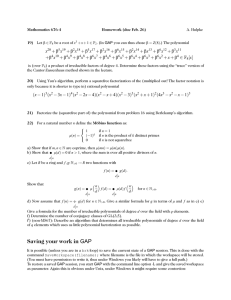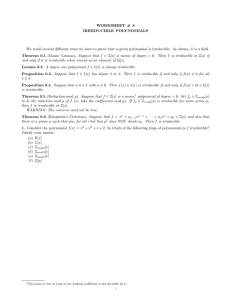Mathematics 676-4 Homework (due Feb. 19) 14) A. Hulpke
advertisement
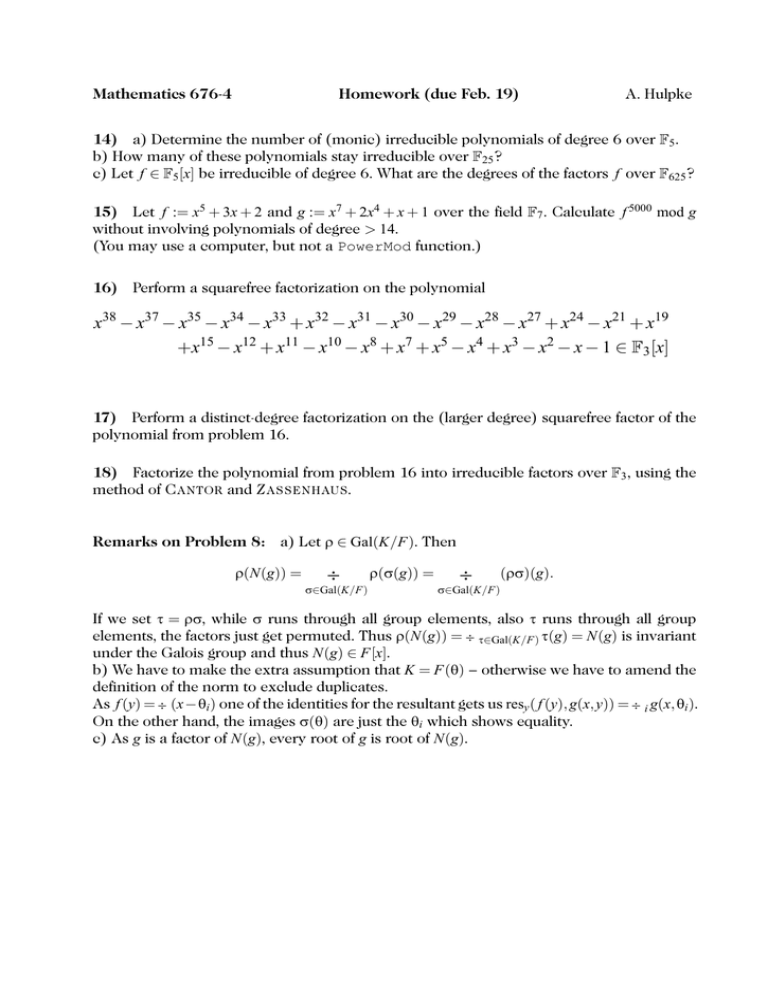
Mathematics 676-4 Homework (due Feb. 19) A. Hulpke 14) a) Determine the number of (monic) irreducible polynomials of degree 6 over F5 . b) How many of these polynomials stay irreducible over F25 ? c) Let f ∈ F5 [x] be irreducible of degree 6. What are the degrees of the factors f over F625 ? 15) Let f := x5 + 3x + 2 and g := x7 + 2x4 + x + 1 over the field F7 . Calculate f 5000 mod g without involving polynomials of degree > 14. (You may use a computer, but not a PowerMod function.) 16) Perform a squarefree factorization on the polynomial x38 − x37 − x35 − x34 − x33 + x32 − x31 − x30 − x29 − x28 − x27 + x24 − x21 + x19 +x15 − x12 + x11 − x10 − x8 + x7 + x5 − x4 + x3 − x2 − x − 1 ∈ F3 [x] 17) Perform a distinct-degree factorization on the (larger degree) squarefree factor of the polynomial from problem 16. 18) Factorize the polynomial from problem 16 into irreducible factors over F3 , using the method of C ANTOR and Z AS S E N HAU S. Remarks on Problem 8: a) Let ρ ∈ Gal(K/F). Then ρ(N(g)) = ∏ σ∈Gal(K/F) ρ(σ(g)) = ∏ (ρσ)(g). σ∈Gal(K/F) If we set τ = ρσ, while σ runs through all group elements, also τ runs through all group elements, the factors just get permuted. Thus ρ(N(g)) = ∏τ∈Gal(K/F) τ(g) = N(g) is invariant under the Galois group and thus N(g) ∈ F[x]. b) We have to make the extra assumption that K = F(θ) – otherwise we have to amend the definition of the norm to exclude duplicates. As f (y) = ∏(x−θi ) one of the identities for the resultant gets us resy ( f (y), g(x, y)) = ∏i g(x, θi ). On the other hand, the images σ(θ) are just the θi which shows equality. c) As g is a factor of N(g), every root of g is root of N(g).
